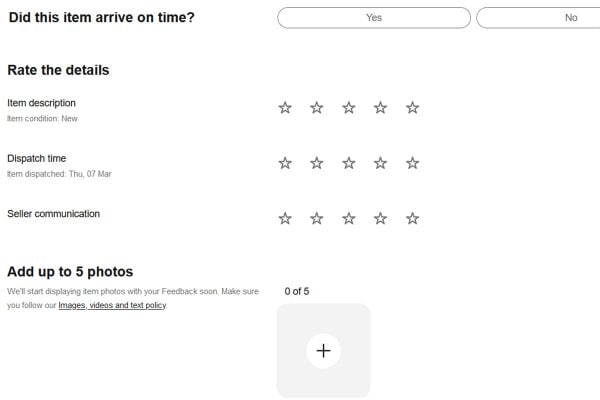Mark is a long time eBay trader, in fact I think he and I probably started trading on eBay about the same time some ten years or so ago. As well as a successful collectables business he also runs Business Photography and can shoot stunning commercial product shots ready for your website or eBay.
Today Mark looks back at eBay’s beginning as a Social Commerce company and asks how did they lose their uniqueness?
Ask yourself this question: What was it about eBay back in the day that made it so successful? What was it that set eBay apart?
They created a sense of community, they created a sense of interaction between people that did not know each other, but had a shared interest, or grounds upon which to trade.
It strikes me as kind of funny, back in the day, before “social networking” was a byword in the English language, eBay was operating “social commerce”.
eBay provided the platform for a large community to come together and to trade. It was the greatest Trading Community this planet had ever seen. It became the Small Business Hub of the world. And it was successful, it worked, people engaged, they traded, they communicated to the rest of the community how their trading was going. Many of them did very well out of this. But then sadly, one day, something changed.
The Corporate mindset saw money being made and moved in. All of a sudden eBay began to be embarrassed by their Social Media beginnings. They wanted to sit at the corporate table and look respectable.
And before you know it, this Social Commerce, created by a community of individual people, was slowly eroded in favour of bringing other corporate diners to the table. Slowly the community was asked to close up their market stalls and make way for large retailers, all the while being promised that the large retailers presence wouldn’t hurt the incumbent business.
Sound familiar?
And here we are now in 2012 with an eBay that has lost the Social Commerce roots they were founded on, fighting with other corporations to gain control of as many beans as possible. Yet it seems to me that eBay does not know what they have lost. It does not understand that the very thing was the community it helped build, is what everyone is striving to build today.
eBay have lost the very thing, that is revolutionising the rest of the eCommerce world.
eBay lost their Social Media roots.
Before Facebook, there was eBay…









12 Responses
“The Corporate mindset saw money being made and” … Wall Street ushered in Bain & Co alumni to run eBay, to return those dollars being spent with real people to the corporate coffers where they really belong.
Trading on eBay since before there was an ebay.co.uk – I think that’s 12.5 years.
or small market traders turned into big business because of ebay and realised that wasting time being nice is not profitable
Many buyers still have a community mindset although I believe that they do distinguish between what they perceive as big business and the small market trader and the relative customer service expectations.
This means the market trader now has a harder job at playing the community game as a result of the lowering of community standards bought about by the impact of big business on “the new ebay”.
And “the new eBay” do everything to encourage this as the service efforts of the small market trader rub off on big business who are the main beneficiaries.
And for all their efforts at maintaining a community spirit “the new eBay” reward the small market trader with…(you can complete this sentence yourself)
“the new ebay” (Apple may have set a trend here) realised some time ago that small market traders were generating small profits and that “the new ebay” had to be nice to big business to generate big profits.
The reality dawned that the ebay mission statement of “levelling the playing field” was not going to be an attractive proposition for the customers that ebay were really chasing and so “the new ebay” was born out of the ashes of ebay.
I am mystified by people who lament the loss of the social aspects of eBay. It was always one of the absolute worst aspects of the site. When they started to finally strip them out, it became a marketplace that was at once more professional and much easier to use.
Outside of the odd blog post like this, I’ve never heard a real, active eBay seller get misty eyed about those awkward and, frankly, in the way social aspects.
The only thing I can imagine is that nostalgia for the past has taken over and overwritten the realities of what it was actually like to sell on the early eBay. For all of its flaws and little annoyances, the site is overall a billion times easier to use then it was in those early days. (I started selling in 1997.)
As for the advent of social networking sites, I see that for nothing but the good thing it is: making social networking an optional add on to the e-commerce experience instead of awkwardly trying to force it into the selling interface itself like eBay tried to do.
And yet, the latest set of results would tend to suggest that they are mostly doing things right.
Hi Mark,
Nice to see you 🙂 I have to say I disagree with those who lament the ‘good old days’ – rose tinted specs is a common condition.
The social aspect of eBay often made it clunky, hard to trade on, and too personal. There’s a difference between ‘personal service’ and ‘taking things personally’ and in the ‘good old days’ the boards were full of indignant sellers (myself included on occasion!) bleating about negatives. Not, I hasten to add, talking about how to avoid them by serving customers better, but talking about how the buyer had hurt them personally and was ‘obviously an idiot’
eBay will do what is best for eBay. What is best for eBay is profitability. Shedding the ‘social aspect’ has clarified eBay’s ecommerce role and made it more profitable. It has also, I suspect, made professional sellers more profitable, whilst retaining ‘online space’ for those clearing out their lofts.
Before Facebook there was eBay? Have you tried the Facebook selling experience?! 😀 It reminds me of eBay a decade ago. 40 trillion questions, loads of requests for additional photos and then ‘do you take Malaysian money?’ (I kid you not)
eBay is eBay and Facebook is Facebook. They co exist and have separate, overlapping but not interchangeable function (thank goodness!)
🙂 gg